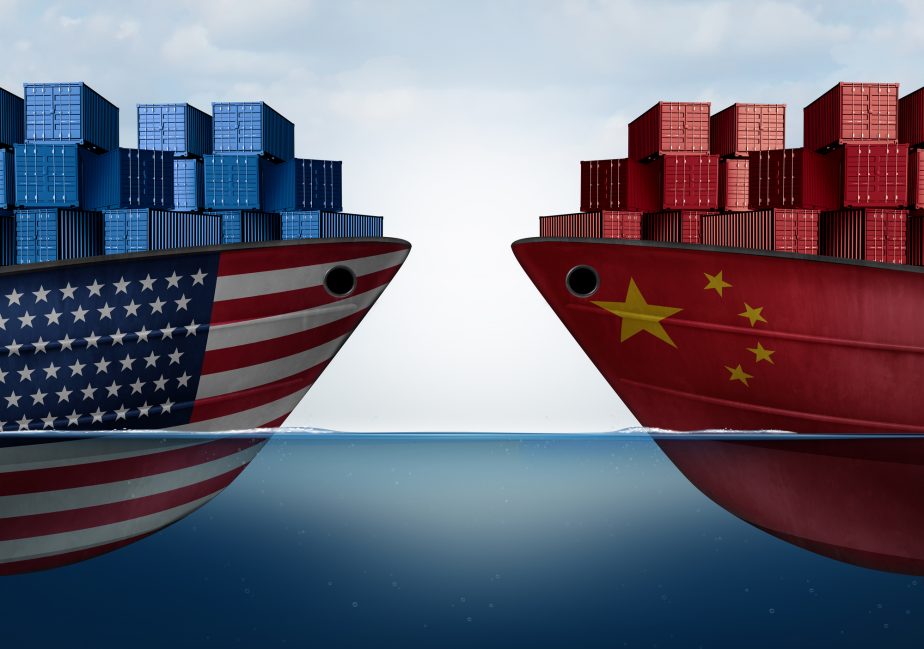As the largest commercial conflict in modern history, the China-U.S. trade war, launched by then-President Donald Trump almost five years ago, was intended to pressure Beijing to change its unfair trade practices and decouple the United States from China’s economy. While there is growing evidence that the elevated tariffs have inflicted considerable harm on U.S. consumers and manufacturing output and employment without generating the desired leverage over China, it is less clear to what extent how the trade war has impacted China-U.S. economic relations or succeeded in separating the two largest economies in the world.
A closer look at China-U.S. trade and investment relations suggests that the trade war may have brought about some subtle changes to existing commercial patterns, although its long-term effects remain to be seen. In terms of trade, total U.S. imports from China dropped from $38.27 billion in March 2018 to $32.95 in January 2020, only to gradually recover since then. U.S. imports of Chinese products subject to the highest tariffs, which were concentrated heavily in intermediate products and capital goods, have experienced the steepest decline, while U.S. imports of non-tariffed goods, which covered mostly consumer products, have largely been insulated from such effects.
This pattern is broadly consistent with the finding of a recent study which shows that political and economic tensions in China-U.S. relations in the pre-pandemic period, including those generated by the trade war, have had a chilling effect on bilateral trade relations, at least in the short term. Furthermore, such tensions have disproportionately affected industries highly integrated with the Chinese market. Not only were industries with a high level of supply chain integration with China – such as auto parts and IT hardware – hit with higher tariffs, but the tariff hikes have also had a more sustained negative impact on U.S. imports from these industries.
In other words, despite the continued rise in total China-U.S. trade, the tariffs may have had varying effects on different sectors of two economies, with those sectors with the most extensive tariff exposure bearing the largest costs.
The heightened risks generated by the trade war also prompted speculation that multinational corporations (MNCs) may be increasingly relocating production from China back to the United States or to third countries in order to minimize their vulnerability to geopolitical and economic risks. News reports of big tech companies such as Apple or Samsung moving production from China to friendly countries seem to feed such a narrative. However, recent surveys of MNCs based in China paint a more mixed picture.
For example, the annual China Business Climate Survey (BCS) conducted by the American Chamber of Commerce in China (AmCham) in 2022 found that China remains a top business destination for many members, although most companies did not report new significant investment in the year, a pattern that is largely consistent with that reported in the 2020 China BCS.
Similarly, the 2022 Business Confidence Survey released by the European Union Chamber of Commerce in China shows that despite the supply chain disruptions caused by the trade war and the pandemic, European companies remained committed to the Chinese market throughout 2021. In February 2022, only 11 percent of the respondents reported that they were considering relocating out of China, increasing to 23 percent by April 2022. In addition, about two-thirds of the respondents ranked China among their top three investment destinations, especially in sectors such as petrochemicals, chemicals, and refining.
Still another recent survey of over 400 China-based MNC subsidiaries conducted at the end of 2021 suggests that only 5.35 percent of the firms relocated either production or sourcing activities outside of China, with 63.46 percent of the firms indicating that they have not considered relocation to other destinations and another 30.20 percent responding that they were considering relocation but have not taken any action.
Interestingly, firms highly dependent on sourcing from the local Chinese market tended to be less likely to switch suppliers or to relocate production due to their heavy embeddedness in local supplier networks, which increases organizational inertia. They were also less likely to oppose the trade war, as they possess outside options that reduce their vulnerability to China-U.S. trade restrictions.
Overall, while much is still in flux, preliminary evidence indicates that the trade war may have had a somewhat immediate, nuanced, and short-term effect on bilateral trade relations. In contrast, the size of the Chinese market and the ties that foreign companies have forged with Chinese firms over the years may have reduced the likelihood of rapid and large-scale changes in investment relations, although China’s position in East Asian and global supply chains will likely no longer look the same as before. What we are witnessing is the gradual reconfiguration of China-U.S. trade, investment, and supply chain relations, the long-term effects of which are still unfolding.
thediplomat.com

